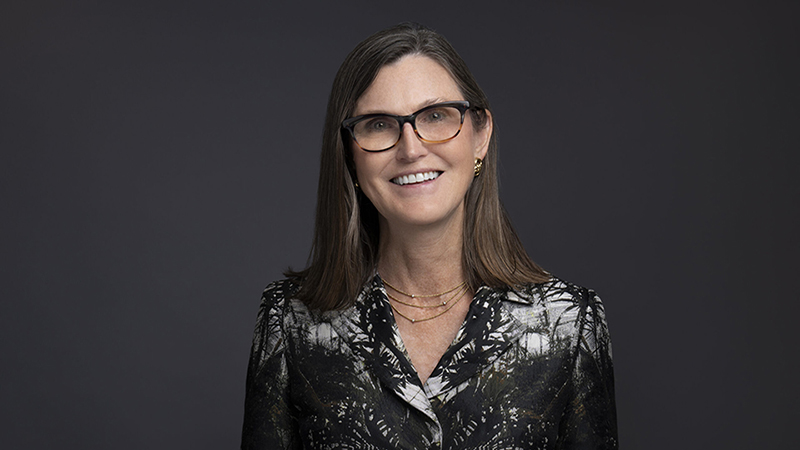Ark Invest CEO Cathie Wood (pictured) has labelled the Federal Reserve’s hiking cycle, which saw US interest rates rise to 5.5% from 0.25% over the last 18 months, as “one of the biggest mistakes in monetary policy history”.
She said that the central bank’s inflation fears are “misplaced”, and should now be concerned about deflation instead.
“The Fed’s moves did arrest the price shock caused by Covid-related supply chain bottlenecks and pushed commodity prices, as measured by the Bloomberg Commodity Index (BCOM), back into the deflationary trend that has been in place since the Great Financial Crisis (GFC) in 2008,” says Wood.
“But today, BCOM is trading at the same level as it was more than 40 years ago in the early eighties, suggesting that the Fed’s fears are misplaced.”
She adds: “At the same time, in the technology realm, ChatGPT began to dramatise the seemingly miraculous breakthroughs that are likely to tip the scales even further toward broad-based deflation.”
See also: LSEG Lipper: ETF value breaks £1trn on London Stock Exchange
February’s US inflation print, released earlier this week, saw the annual rate rise 40 basis points to 3.2%.
Wood believes that technological breakthroughs associated with AI should begin to ‘move the needle’ on macroeconomic metrics significantly during the next decade.
“Because the Fed still seems to be fighting the inflation war, that we believe ended in 2008, the equity market has been somewhat unsettled this year. Deflation would punish companies with leverage, and reward those with cash piles,” she explains.
“In our view, the deflationary ramifications of current Fed policy are already surfacing through bankruptcies in commercial real estate, both office and multi-family, and could culminate in another round of regional bank failures.”
However, Wood argues that over the long term, AI innovation will be key to “super-exponential growth”.
She says: “Once the cyclical correction is complete, AI should continue to take off and catalyse other technologies — including robotics, energy storage, blockchains, and multiomics sequencing — creating convergences that we believe will lead not to exponential growth, but to super-exponential growth. Already rapid growth rates that accelerate over time.”
The Federal Open Markets Committee will meet next week (20-21 March) to decide on their next course of monetary policy action.









